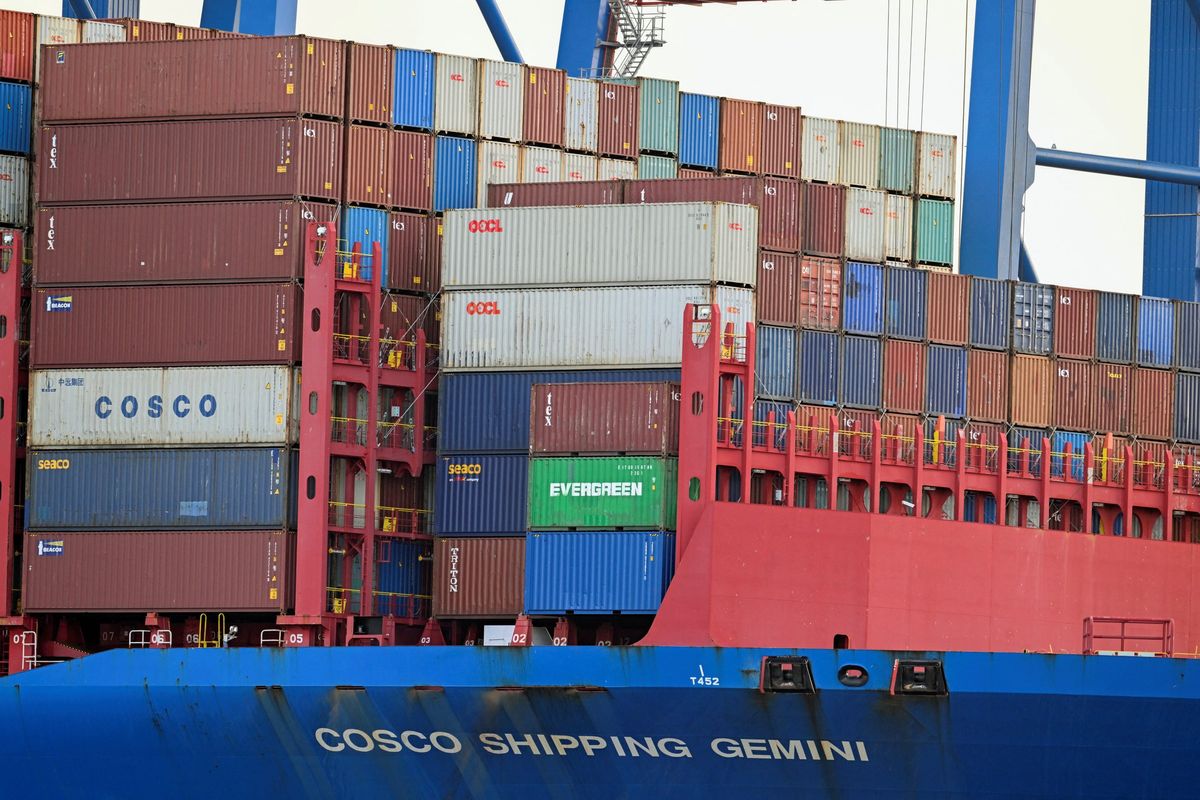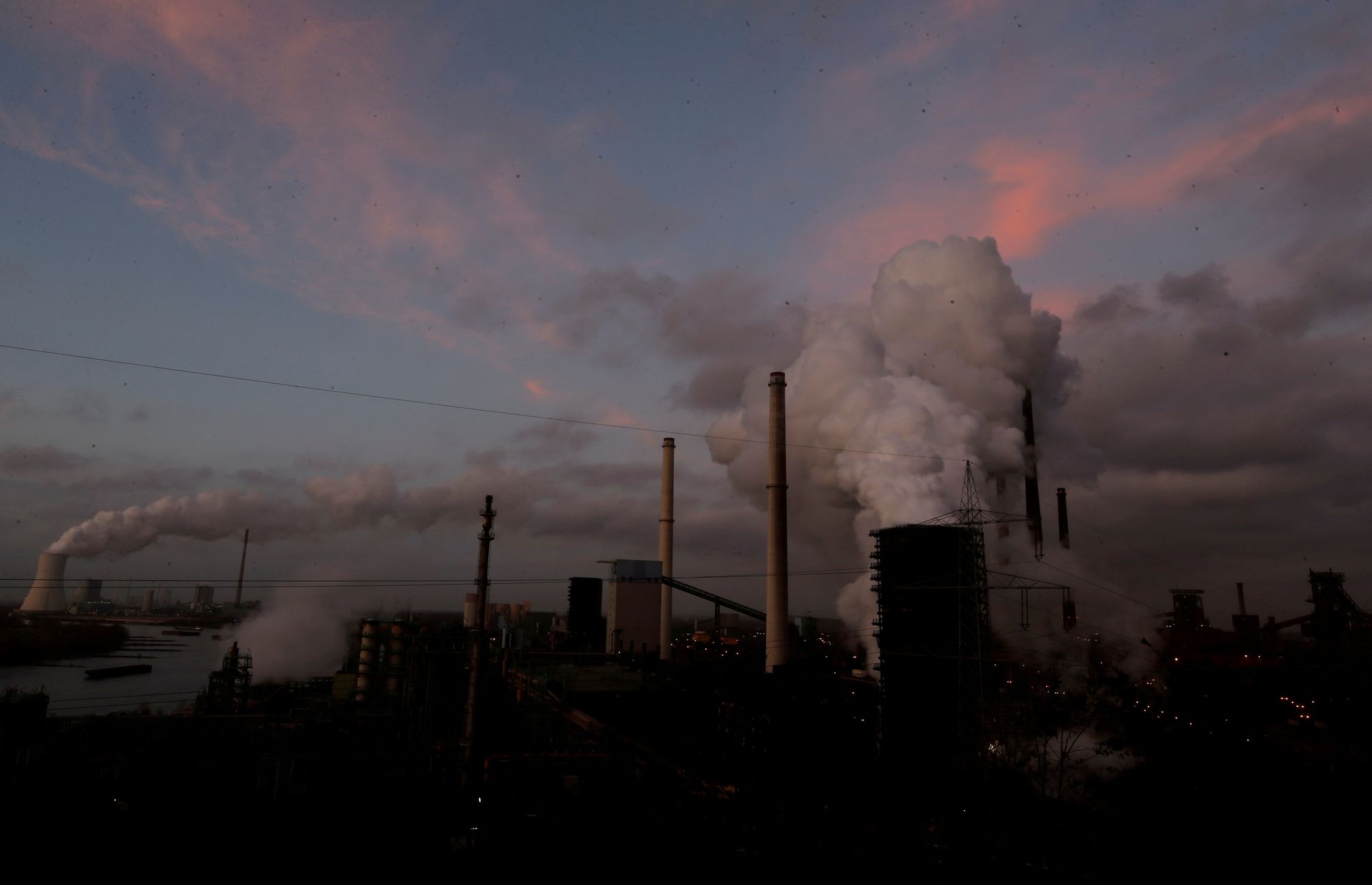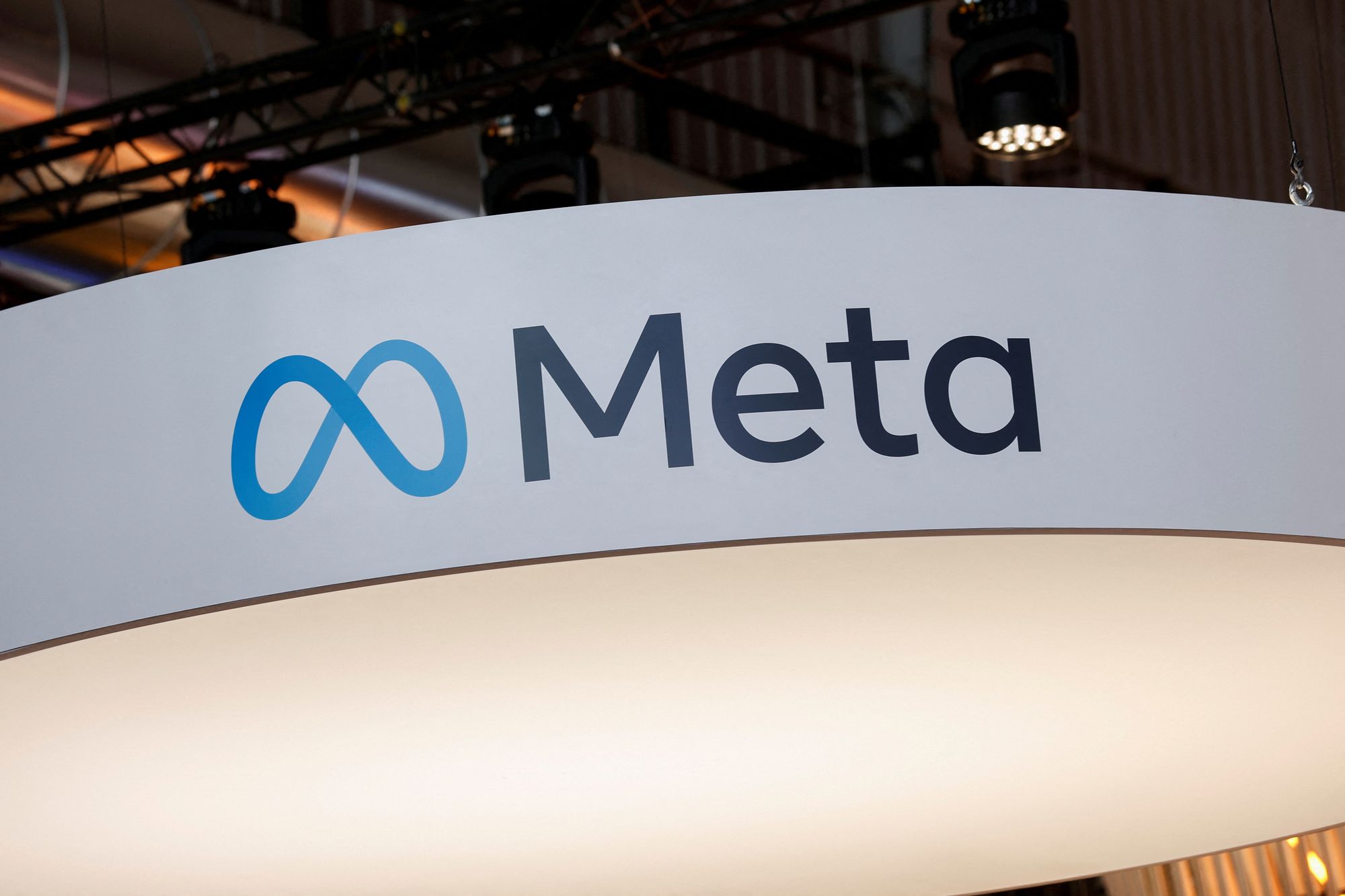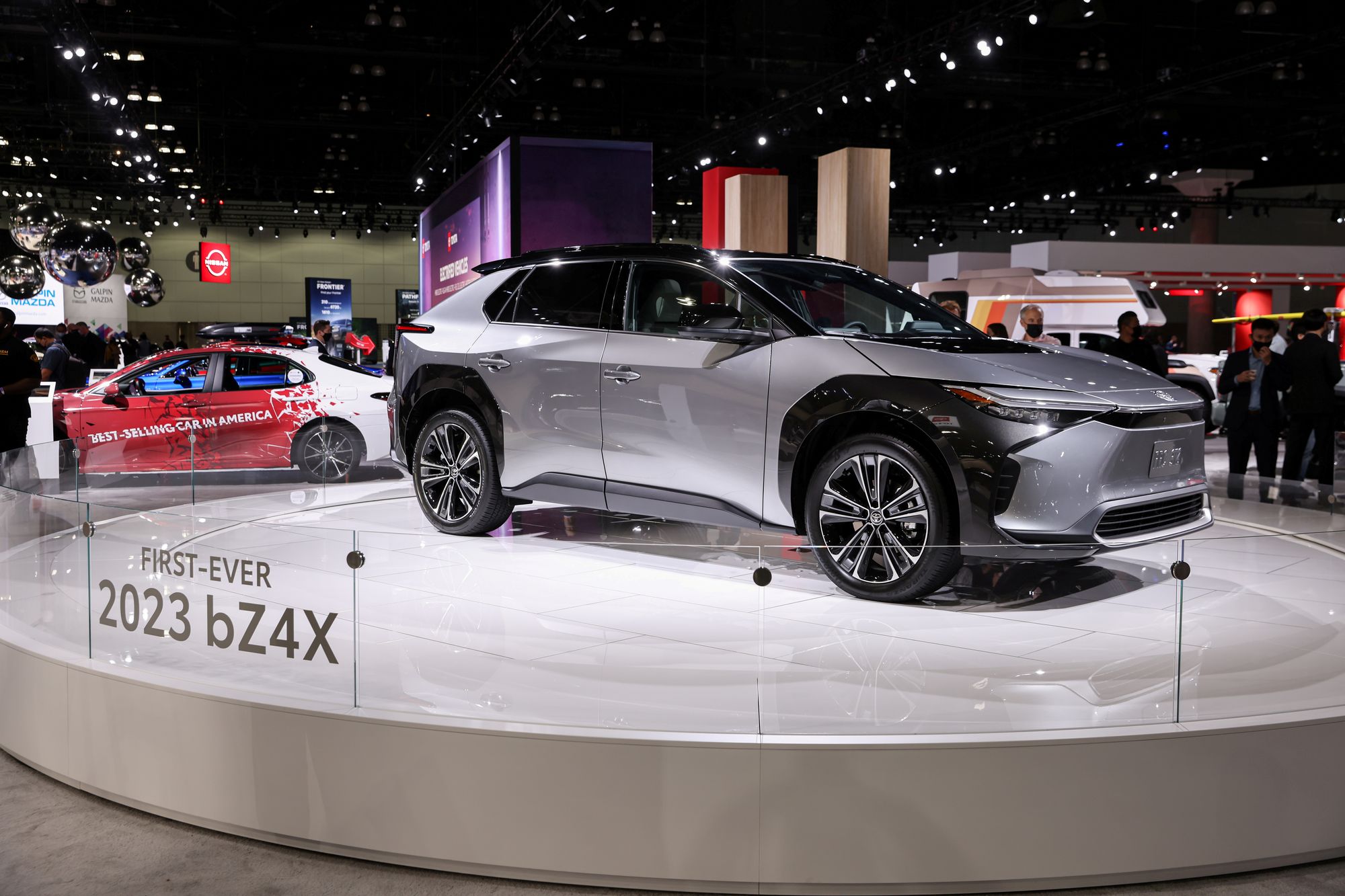From China buying into a German port to Elon’s punny Dad jokes – Here’s your October 28 news briefing

A few minutes every morning is all you need.
Stay up to date on the world's Headlines and Human Stories. It's fun, it's factual, it's fluff-free.
To start off, we’re looking into:
Germany approves China buying stake in its busiest port
Last year, Chinese shipping giant Cosco made a bid to purchase a stake in some terminals at Germany’s largest shipping port in Hamburg. But, officials have been divided over the deal and worried about becoming too reliant on China, its largest trading partner.
Some German coalitions and the European Commission also opposed the deal as a potential national security risk. Cosco has been buying up European port assets – it owns an Athens port, a controlling stake in a Belgian port and stakes in Antwerp and Rotterdam.
On Wednesday, Chancellor Olaf Scholz’s administration approved a compromised version of the deal, with Cosco getting a reduced stake of 24.9% instead of the 35% it had planned. This doesn’t give the company any voting or management rights.
EU strives for “zero pollution” in the air

Each year, there are 300,000 premature deaths in Europe because of air pollution. It also causes a lot of problems like diabetes, lung disease and cancer. Yesterday, the UN also released a new report which says that most countries’ current climate pledges won’t cut it for reaching global goals to avoid catastrophic climate change.
On Wednesday, EU leaders proposed stricter measures to achieve zero pollution by 2050 and tackle health and environmental problems related to pollution across the bloc. One is that European countries must meet new air pollution limits, cutting more than half of the primary pollutant by 2030. This will bring the EU closer to last year’s tightened WHO air pollution guidelines. Another is that the cost of removing micropollutants from wastewater will be passed over to the companies responsible for it, making a big mark on the pharmaceutical and cosmetics industries.
Meta loses top 20 status

Meta’s latest big project is Reality Labs (RL), a metaverse initiative that hasn’t quite taken off yet. RL used to be the independent company Oculus until Facebook (now Meta) bought it, integrating its software and hardware. Right now, they’re doing a lot of (very expensive) development in cutting-edge tech. They’re researching “co-adaptive learning” using high-tech wristbands, working on “super real 3D audio” and developing photo-realistic VR avatars.
But Meta actually lost US$676 billion this year. It’s no longer one of the top 20 largest companies in the world. This shift is in part caused by Reality Labs, which is reporting its third straight quarterly loss of US$9.44 billion total in 2022 (so far). Last year, it saw US$10 billion in total losses. Meta’s stock is now down as much as 25%. But this isn’t all RL’s fault. Meta also had disappointing revenue this past quarter, bringing in only US$1.64 earnings per share after estimating US$1.88.
To end, we’ll look into:
How green are EVs?

The electric vehicle (EV) revolution is really catching speed. While the world’s most famous EV producer is Tesla, other brands are quickly catching on. GM, Ford and Mercedes-Benz are all making moves into the EV market. In the coming years, we can expect 12 more EVs to come out.
Back in 2021, EV sales represented almost 9% of global car sales, more than tripling their market share over two years. So, where does the demand for EVs come from? Well, some governments have begun incentivizing their purchase. Also, it costs less to recharge a car than it does to put gas in it constantly, and many people have started trying to reduce their carbon footprints.
But exactly how green are EVs? How much does it help the environment to drive one? It turns out there are a lot of myths surrounding EVs, and we’re here to debunk them.
For the record, experts agree that plug-in vehicles are more climate-friendly than traditional cars. More electricity is produced using renewable resources every year. The option to buy completely “green power” is relatively accessible.
That doesn’t mean EVs are completely eco-friendly.
For many, the electricity used to charge them is still produced by burning coal. Electricity grids need to get way cleaner before EVs are carbon-free or neutral. “The reason electric vehicles look like an appealing climate solution is that if we can make our grids zero-carbon, then vehicle emissions drop way, way down,” said Jessika Trancik, an associate professor of energy studies at MIT.
On top of that, the lithium-ion batteries that power EVs aren’t that great, either. They rely on raw materials like cobalt, lithium and other rare earth elements – all of which have been linked to environmental and human rights concerns. And the water required for producing these batteries means that manufacturing EVs is about 50% more water-intensive than regular engines.
But, as the US EPA explains: “Recycling EV batteries can reduce the emissions associated with making an EV by reducing the need for new materials. While some challenges exist today, research is ongoing to improve the process and rate of EV battery recycling.”
So, they might not be zero-carbon now, but EVs do have the potential to be cleaner options than traditional cars.
In other news …
📉Stocks: MSCI’s global gauge of stocks is down 0.48% at 2523.59 at the time of writing.
📰Some specifics:
- Dow Jones is up 0.61% to 32,033.28.
- Nasdaq Composite is down 1.63% to 10,792.68.
- S&P 500 is down 0.61% to 3,807.30.
- Hang Seng Index is up 0.72% to 15,427.94.
🧠Some quick factors to bear in mind:
- The US economy is growing again, with stronger exports, steady consumer spending and a healthy job market. This helps restore investors’ confidence in the world’s biggest economy.
- The market was swayed by US GDP data, a measure of US local economic output, which rose 2.6% in Q3, as the US economy rebounded from the last two declines, showing the resilience of US consumers and US businesses and easing the fear of recession.
- On the other hand, US tech stocks were having a bad day. Meta fell 25%, still affected by its weak earnings, and Amazon plunged 21% at one point after hours because of a weak company outlook. Apple was down about 1% after less-than-great quarterly iPhone sales.
- Meanwhile, Hong Kong stocks continued their rally from this week’s lows, with investors continuing to cash in on shares’ low valuations. Expectations of strong corporate earnings also helped motivate investor interest.
- But, Hong Kong home prices dropped 2.1% in September to the lowest since January 2019. Prices have decreased 8.1 % for the last nine months as homeowners face uncertainty over rising mortgage costs and a gloomy economic outlook.
👄Some comments and chatter:
- “A return to economic growth in the third quarter obscures continued signs of a slowdown in components that provide a cleaner signal of momentum … The Fed is likely to view the weaker components as intended consequences of its tighter monetary policy, and not as reasons to back off the tightening cycle just yet,” said economists Andrew Husby and Eliza Winger.
- “As the Fed embarks on this planned slowdown, it is eating away at some of their consumer-faced businesses, and given their high multiples it is causing big contractions in their stock prices,” said Rick Meckler, a partner at Cherry Lane Investments in New Jersey.
- “Amazon results just reflect the changing tastes of the consumer which nobody should be surprised by it. We were locked in our homes for two years and we’re getting out,” said Kim Forrest, chief investment officer at Bokeh capital partners.
🛢Oil: Oil rose on strong crude demand, and the market is optimistic about US crude exports. US crude rose 1.3% to US$89.08, and Brent went to US$96.96 per barrel, up 1.3%.
👛Bitcoin: Bitcoin was down 2.42% to US$20,272.10 at the time of writing.
🚫US sanctions Iran: On Wednesday, the US set a bunch of new sanctions against Iranian officials involved in cracking down on the protests in Iran. The Iranian government is trying to control the masses in an uproar after Mahsa Amini’s death. Fourteen people and three organizations are being sanctioned.
😷China COVID outbreaks: From Wuhan to Xining, China is tightening COVID curbs by sealing up buildings and locking down entire districts to stop a slew of outbreaks. On Thursday, China had its third straight day with over 1,000 new COVID cases nationwide, which is enough to enforce more curbs and restrictions all over.
👱♀️Meloni’s first moves: Italy’s new far-right government led by PM Giorgia Meloni just won the second of two confidence votes in Parliament by a landslide. Before the vote, Meloni repeated policy goals, explaining that a peace deal between Russia and Ukraine could only be reached by helping Ukraine militarily.
⌚Sunak pulls out of COP27: The newest British Prime Minister, Rishi Sunak, has decided to skip the COP27 climate summit in Egypt next week because of “other pressing commitments.” The UK will still be present, though, represented by other senior ministers and COP26 President Alok Sharma.
💬Sechin’s comments on China: Igor Sechin, CEO of Russian oil giant Rosneft (and one of Putin’s closest allies), praised China’s leaders, saying that Taiwan would return to the mainland on time. Taiwan’s Foreign Ministry, meanwhile, has condemned this comment, explaining that only the Taiwanese people can decide their future.
🌎Greenhouse gas emissions hit record high: On Wednesday, the UN weather agency reported that the three main greenhouse gases (carbon dioxide, methane and nitrous oxide) hit record-high levels in the atmosphere last year. The one with the biggest jump is methane. They called this news an “ominous” sign.
💸Meta fined US$25 mil: On Wednesday, a Washington state judge fined Meta US$24.7 million for repeatedly and intentionally violating campaign finance disclosure law. This is believed to be the largest campaign finance penalty in US history.
🏳Liberating Crimea: On Tuesday, Ukrainian President Zelenskiy vowed to reclaim Crimea as parliamentary leaders met in Croatia to figure out an international response to Russia’s occupation of the region. Russia annexed Crimea in 2014. “We will definitely liberate Crimea,” Zelenskiy said.
🌈Activist buys Miss Universe org: Thai business tycoon and transgender activist Chakrapong “Anne” Chakrajutathib has bought the Miss Universe Organization for US$20 million. She controls JKN Global Group Public Co. and has also starred in reality shows. She’s outspoken about being a transgender woman and has helped establish a nonprofit group to promote trans rights. Miss Universe will be added to JKN’s portfolio.
😆“Let that sink in”: Elon Musk, the world’s richest man, went to Twitter’s headquarters before closing his US$44 billion deal to buy the social network. He tweeted a video captioned “Entering Twitter HQ – let that sink in!” where he’s walking into the Twitter offices carrying a physical sink. Oh, Elon.
Written and put together by Joey Fung, Vanessa Wolosz, and Christine Dulion




Comments ()